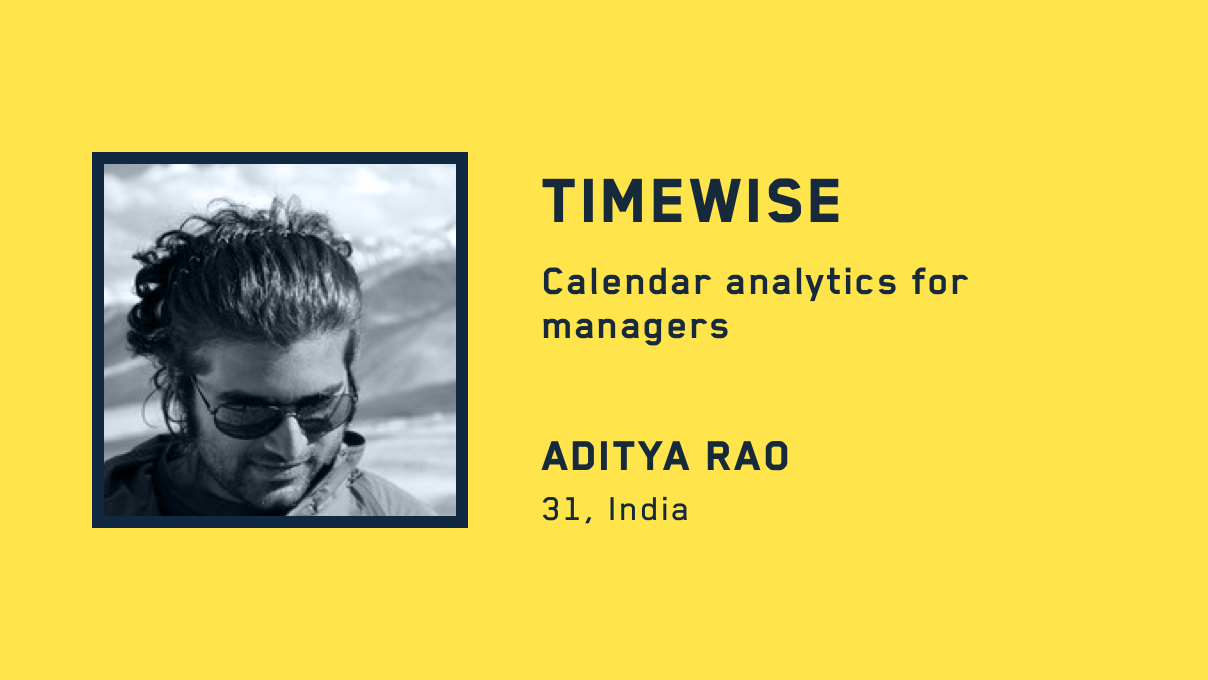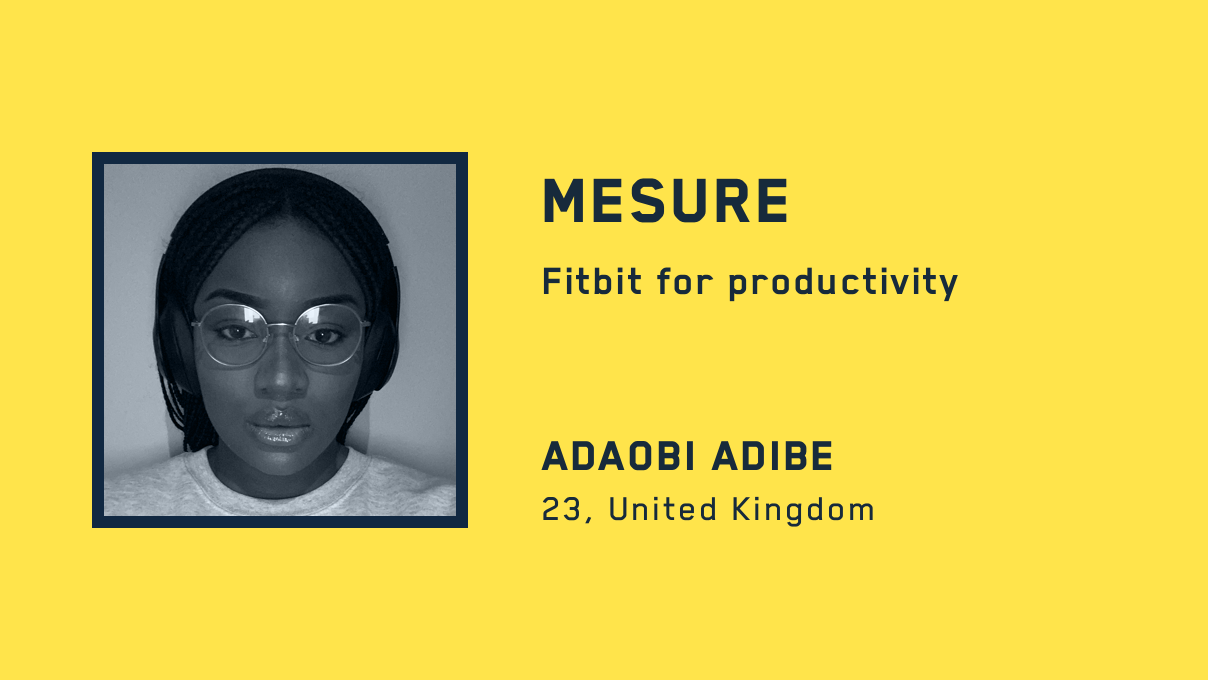
Today Pioneer has funded its 100th individual. One hundred remarkable people, projects, and dreams from over 30 countries. In slightly over a year.
Creating a great company seems like an insurmountable task. But big ideas start small. Make an online bookstore and you could end up with Amazon. Hack together some computers for hobbyists and you might just get Apple. Make something a small group of people really love and the sky's the limit.
The second set of Pioneers in 2020 exemplifies that philosophy. Whether it’s an easier way to publish a blog, better e-commerce search, or a Fitbit for productivity, our founders have focused on making things people love. We can’t wait to see where they go next.

HostNotion - Jordan Burgess
Notion as a blog.
Notion is an easy-to-use wiki. It supports editing, collaboration, notes, and tasks. Given how prolific some Notion pages can become, why not turn them into standalone websites?
HostNotion allows you to use your Notion as a blogging backend. It provides analytics, branding and SEO optimization and the ability to use a custom domain. If you want to update a post, you don’t need to copy and paste into your blogging system anymore- your change will update immediately.
Noteworthy: Jordan studied engineering at Cambridge and MIT, and was previously a research scientist working on Amazon Alexa. His one shot learning paper got accepted to a NeurIPS workshop in 2016.

Jindosh - Akshay Verma
Gamified software developer screening.
Take-home projects. Phone interviews. Onsites. What if there was a way to make the dreaded developer interview process more fun? And if your candidates enjoy themselves, chances are that they’ll be more likely to accept.
Enter Jindosh. It’s a tool for hiring software developers that takes place entirely in various text-based games. If you’re a developer with some time to spare, see if you can beat their challenge.
Noteworthy: Akshay is quite resourceful. When he was younger, he created a CLI to order pizza so he won’t have to navigate to a website or make a call when coding. Even though he’s been having some difficulty getting users, he’s been pushing through and iterating the product.

Verihubs - Williem
AI-based KYC.
Whether it’s OTPs, verifying customers through documents or preventing identity theft, almost every company needs to verify their users. But implementing each of these internally would cost a lot. Instead, you can use Verihubs.
Verihubs is a KYC platform that uses AI to verify your customers. Some of their products include SDKs and APIs for liveness detection, face verification, and OCR for documents.
Noteworthy: Williem is a PhD graduate in information and communication engineering, and is one of very few Indonesians who’s had his computer vision research get published in journals like CVPR, ICCV, and TPAMI

Deft - Alex Gunnarson
Better ecommerce search.
Picture this: You want a new phone case. You type it into Amazon… and, you thought choosing between 30 types of milk at the store was bad? In front of you are 500 different options to choose from.
“But that search term is too generic”, you think. What if you were in the mood for something very specific, like a "gray couch with wood trim on the bottom in a mid-century style for under $600"? Good luck fiddling with all of Amazon's filters.
Everyone knows that Amazon’s search is bad, but the team at Deft is actually trying to fix it. You can search products by image and natural language queries. And the results are aggregated from all sites, both Amazon and other walled gardens.
Noteworthy: Alex has shown impressive progress during the tournament. Over 2 months, he indexed over 100,000 products, sped up his search 420x, and onboarded several beta users.

Timewise - Aditya Rao
Calendar analytics for managers.
Are you spending enough time on 1:1s? Maybe too much time in meetings? If you’re in a startup, are you speaking to customers enough? Timewise analyses your calendar and gives you a report of what you spend the most time on.
While they started with calendar analytics, they are now moving into performance management with a slack app.
Update:
After listening to user feedback, Aditya has now pivoted Timewise to Kaapi. They help remote managers be better leaders via weekly team checkins, effective 1:1s and easy performance reviews.
Noteworthy: Aditya was previously a cofounder at a local services marketplace in India. He taught himself how to code in 2019 and is now working on Timewise full time.

Mesure - Adaobi Adibe
Fitbit for productivity.
Measurement is important. Just like tracking calories helps you improve your diet, tracking what you spend time on will help you improve your productivity.
Mesure is like a fitbit for professional performance. It integrates with several applications (calendars, Slack, Jira, email etc.) to give you details about your performance in real time. But this is a tool for employees to personally manage themselves, not to be managed, which is why the data is completely private and inaccessible to HR or managers.
Noteworthy: Adaobi previously led Campus Capital, a £2.5 million fund that focused on early stage startups. It was the largest partly student led fund in the world. She’s founded 2 startups, worked as an investment associate at Microtraction, and worked at a genomic data startup.

Cliqq - Vachan Konamme
Interactive Patreon for Twitch.
Twitch viewership is steadily increasing by the millions. With more viewers come more streaming categories, and one of these is reacting to user submitted content. Streamers can set a minimum donation which lets viewers submit videos to their watch queue.
But submitting content is very difficult for viewers. They need to navigate multiple sites, and even after submitting a video, they don’t know the status of their submission. Cliqq solves this. They provide software that allows users to submit videos for streamers to react to.
Noteworthy: Cliqq might sound like an awfully small curiosity in a crowded market, but within 6 weeks, Vachan went from an idea to a working website with several streamers who have audiences in the thousands.

Vizstack - Nikhil Bhattasali
LaTex for code visualization.
Trying to understand how a complex codebase works without a visual map to help you is an exercise in misery. But just diagrams themselves aren’t enough either. What if there was a way to get the best of both?
Vizstack allows programmers to visualize code structure and execution for better understanding & simpler debugging in existing languages. It’s being built by Nikhil Bhattasali and Ryan Holmdahl from the United States. Just like the GUI made computers accessible to many more people, Vizstack plans on creating tools that reinvent programming.
Noteworthy: Nikhil has always been an avid builder. When he was in high school, he built an automated parabolic solar grill cheap enough to adopt in developing countries.
If these people and projects sound interesting to you, check out the full list: http://pioneer.app/winners. And if you’d like to earn your place on that list… just start playing: https://pioneer.app.